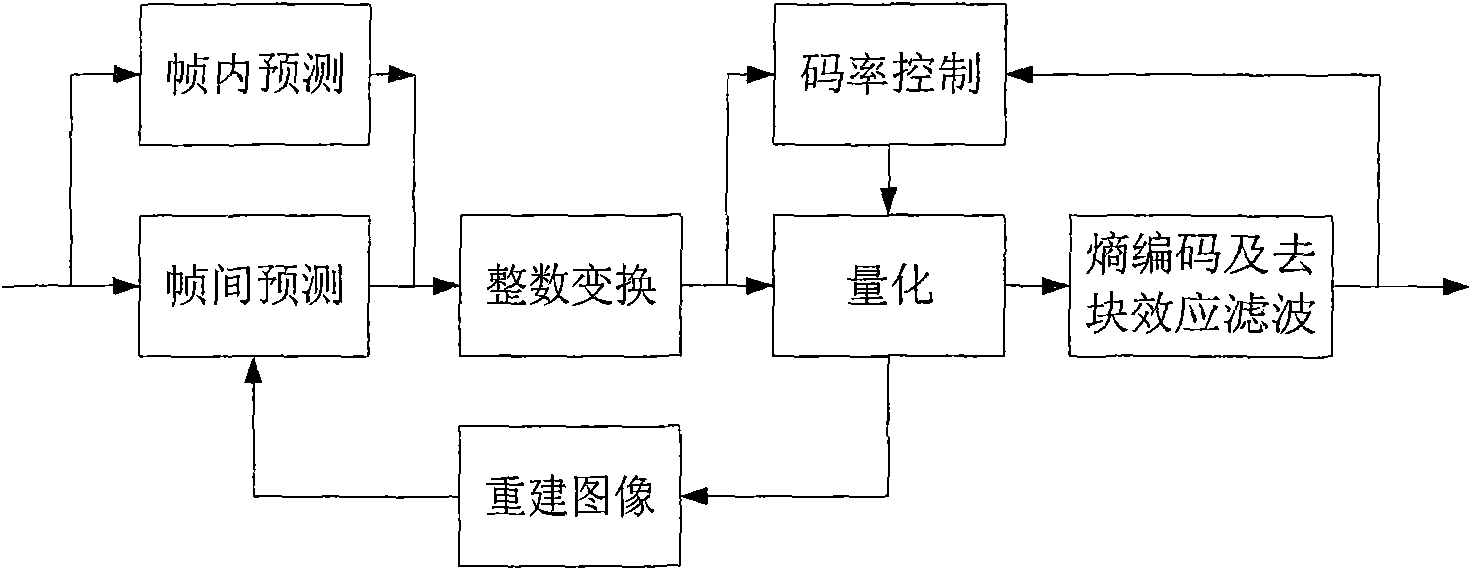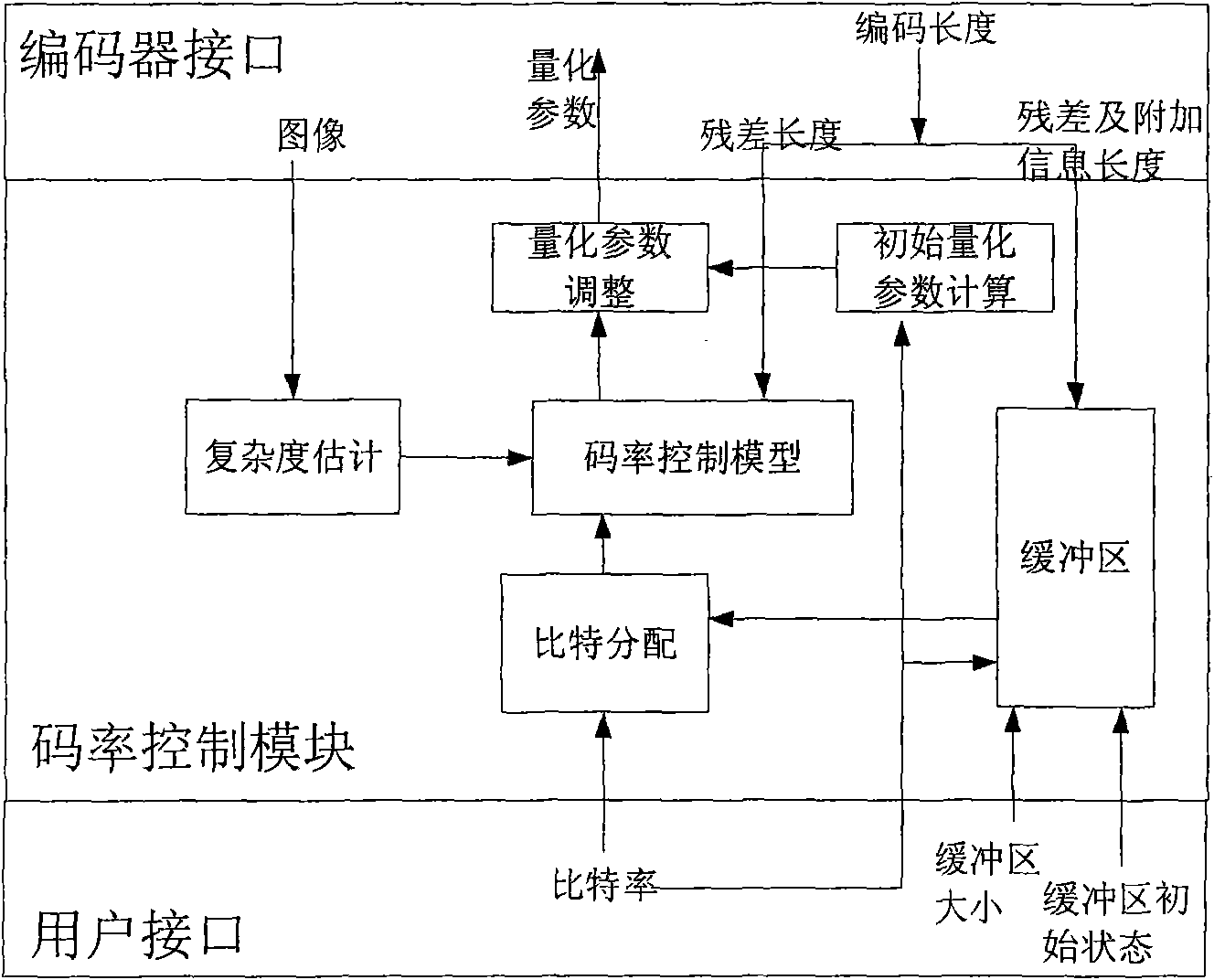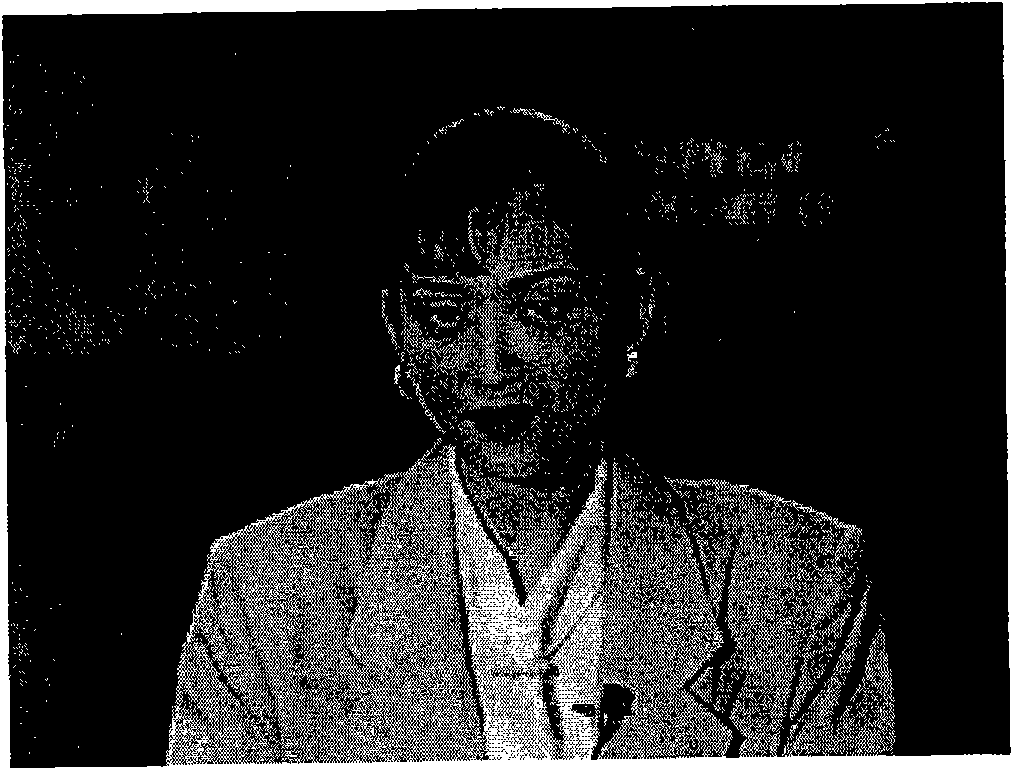Method for confirming initial quantization step in code rate control
A technology of quantization step size and bit rate control, applied in the field of video coding, which can solve the problems of small coding stream length, large PSNR fluctuation, and overall quality degradation, and achieve the effect of improving coding quality.
- Summary
- Abstract
- Description
- Claims
- Application Information
AI Technical Summary
Problems solved by technology
Method used
Image
Examples
Embodiment Construction
[0050] Flow chart of the present invention, as Figure 7 Shown:
[0051] First, step 701 is performed to calculate the feature C of the first image in the video sequence. The image features here can be image entropy, gradient, or other values that can reflect the complexity of the image.
[0052] Then, step 702 is executed, using the QPStep-bpf model to calculate the quantization step size. In the QPStep-bpf model, the quantization step size is directly proportional to the image complexity and inversely proportional to the target bit rate. The product of image complexity and parameter 1 plus parameter 2 is used as the numerator, the sum of the target bit rate of each frame image and parameter 3 is used as the denominator, and the ratio of the two is the quantization parameter. The QPStep-bpf model can be expressed as: QPstep = α × C + β b...
PUM
 Login to View More
Login to View More Abstract
Description
Claims
Application Information
 Login to View More
Login to View More - R&D
- Intellectual Property
- Life Sciences
- Materials
- Tech Scout
- Unparalleled Data Quality
- Higher Quality Content
- 60% Fewer Hallucinations
Browse by: Latest US Patents, China's latest patents, Technical Efficacy Thesaurus, Application Domain, Technology Topic, Popular Technical Reports.
© 2025 PatSnap. All rights reserved.Legal|Privacy policy|Modern Slavery Act Transparency Statement|Sitemap|About US| Contact US: help@patsnap.com



